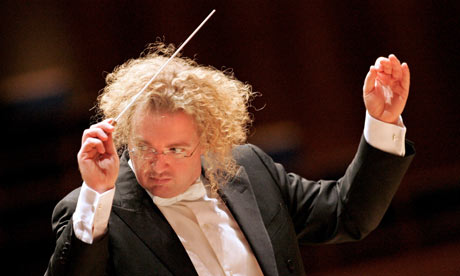
I'm here at the Association of British Orchestras' conference at the Millennium Centre in Cardiff. The first session I've attended has been bleak – a grim forecast of the future of fundraising potential in the arts during the recession.
The room became very quiet indeed during a presentation from the FT's economics editor, Chris Giles, who pointed to the particularities of this downturn: unlike the recession of the 1980s and 90s, it is hitting rich and poor alike, and is not geographically limited. He talked about a seminar he had attended at Davos recently about "the move from philanthrocapitalism to philanthrocrisis". No one is denying that there is a crisis in philanthropy, he said. Taken in concert with the fragility of the public purse and the likelihood of reduced public spending for a decade, he sketched "a scary scenario. All of these things could hit the arts really hard. Everyone should plan for it to happen."
He also envisioned a situation in which orchestras could potentially come under fire. Imagine, he said, in a period of deflation, a Daily Mail headline about "profiteering, snooty orchestras".
Simon Woods, the chief executive of the Royal Scottish National Orchestra, thought that was a real danger, and urged orchestras to "ask what is our value. We have to examine the image of orchestras and what we provide beyond providing concerts for a small group of rich, elite people". He urged orchestras to become better advocates for their work: "That process itself will be self-reflexive. It will force us to ask ourselves questions for our mission – how we can provide greater value and be more committed in our mission. We will need to increasingly demonstrate that. We are going to have to justify every penny that we get from the public purse."
The overall message for orchestras here: they need to work together (and with the Arts Council and others) powerfully to represent their mission in the wider culture – and look after philanthropists, recognising what they have done. Then perhaps people will be ready to give again when the economic weather improves.

